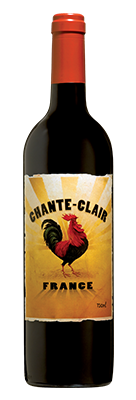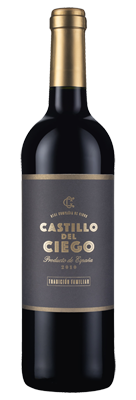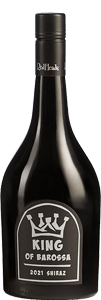Filter by
- $30.00 RRPfrom $21.99 when you mix 12+
- $30.00 RRPfrom $21.99 when you mix 12+
- Lavish premium Shiraz from 5 Red Star Tyrrell’s and “exciting” Heathcote.$40.00 RRPfrom $21.99 when you mix 12+
- Vibrant Shiraz from top estate Moppity oozing cool-climate class.$30.00 RRPfrom $23.99 when you mix 12+
- A most moreish, no-nonsense, fruit-filled red, warmed in the ripeness of southern France.$24.00 RRPfrom $15.99 when you mix 12+
- One of the Clare Valley's most iconic Rieslings with multiple scores of 93-95pts!$28.00 RRPfrom $23.99 when you mix 12+
- Crianza is an approachable Rioja style, this one from one of the region's most highly rated bodegas.$35.00 RRPfrom $27.99 when you mix 12+
- A crisp 91pt Chardonnay from the cool climate Adelaide Hills, showing great balance and composure.$34.00 RRPfrom $29.99 when you mix 12+
- A succulent 94pt Sangiovese from Clare Valley’s dynamic Claymore Wines team.$29.99 RRP$21.99 when you mix 12+
- Food-friendly 95pt McLaren Vale Grenache from a 5-star winery.$42.00 RRPfrom $42.00 when you mix 12+
- "A Tour de Force. 94pt" (Ned Goodwin, Halliday) Petite Sirah (aka Durif) from Elena Brooks.$120.00 RRPfrom $110.00 when you mix 12+
- Gold-medal, 90pt Langhorne Creek Cab from cricket legend Ricky Ponting & award-winning Ben Riggs.$25.00 RRPfrom $23.99 when you mix 12+
- 15 year old special edition Tempranillo from the family behind our bestselling Rioja.$24.00 RRPfrom $16.99 when you mix 12+
- “Decadent, richly flavoured” (The Real Review) Barossa Shiraz with a whopping 98pt score!$80.00 RRPfrom $74.99 when you mix 12+
- 95pt, Gold Hunter Valley Chardonnay of great “breadth of texture and sheer intensity.” Pure class.$70.00 RRPfrom $55.99 when you mix 12+
- Mataro pumps up the volume of classic Clare Shiraz, making: ”excellent drinking. 93pts” (Wine Orbit)$24.00 RRPfrom $17.99 when you mix 12+
- Excellent, 92pt pure Clare Valley Cab Franc from the brilliant Pikes.$28.00 RRPfrom $25.99 when you mix 12+
- 94pt Adelaide Hills blue fruit Shiraz from ‘sustainability-focussed’ The Lane.$70.00 RRPfrom $65.99 when you mix 12+
- $25.00 RRPfrom $19.99 when you mix 12+
- 92pt “intriguing blend…” that makes: “Very good drinking” (Halliday).$30.00 RRPfrom $27.99 when you mix 12+
- Spumante Prosecco offers effervescent fizz with a refreshing lemon zip – pure pleasure!$28.00 RRPfrom $21.99 when you mix 12+
- $45.00 RRPfrom $27.99 when you mix 12+
- Multiple Great Gold and Double Gold wins for this rich, toasty and elegant 97pt Barossa Shiraz$100.00 RRPfrom $84.99 when you mix 12+
- Follow-up vintage to the multi-Trophy-winning 2022 Sangiovese.$25.00 RRPfrom $18.99 when you mix 12+
Wine FAQs
What is vegan wine?
As wine is made from fermented grape juice, you’d be forgiven for thinking that all wines are vegan by nature. So, are all wines vegan-friendly? Not necessarily – what makes a wine vegan is how it’s made. Some winemakers use animal-based products during the winemaking process, which means their wines may not be suitable for those following a plant-based diet.
Before wines are bottled, they undergo a process called clarification. This removes tiny, natural particles and impurities that are natural by-products of fermentation, which can give wine an unappealing, cloudy appearance. Most winemakers use fining agents, which bind with the particles, forming larger clumps that can be filtered away to leave a clear wine.
The problem lies with the fining agents – the most common of which are animal-based products such as gelatin and egg whites.
Winemakers can opt for alternative fining agents made from plant or mineral materials to do the same job. These wines can then be labelled vegan, making them a good choice for anyone wanting to avoid animal products.
Some winemakers avoid clarifying their wines or leave them to clarify naturally over time without fining agents, which makes them vegan-friendly by default.
What fining agents are used in vegan wine?
Traditional fining agents include:
- Gelatin – from the bones, skin or connective tissue of cows and pigs.
- Isinglass – the dried swim bladders of fish.
- Casein – a substance found in milk.
- Albumen – egg whites.
- Chitin – crustacean shell fibre
Although these materials are used in tiny quantities and are removed from the wine once their job is done, some trace amounts could remain in the finished wine. As they aren’t classed as additives, they aren’t required to be listed on the wine label, which could make it harder for vegans to make an informed choice.
Vegan wines are made specifically using synthetic or plant-based fining agents, or they are bottled without being clarified at all. Alternative fining agents include:
- Bentonite – an absorbent clay made from volcanic ash.
- Activated carbon –from coconut shells, bamboo or coal.
- Kaolinite – a type of clay
- PPVP (polyvinylpolypyrrolidone) – a synthetic polymer that’s made in a lab.
- Silica gel – made from silicon dioxide, found in sand and quartz.
- Plant casein – a vegan-friendly protein extracted from legumes like peas and soy.
Does vegan wine taste different?
Vegan wine tastes just like regular wine because it’s made from the same grapes and in nearly the same way. The fining agents used to clarify and stabilise the wine – whether animal-based or vegan-friendly – don’t affect its flavour, so you won’t miss out on taste by picking a vegan option.
There might be a smaller variety of wines to choose from. However, as veganism has become a more popular dietary choice, many wine brands now recognise the need to create vegan-friendly versions of their wines.
How can you tell if a wine is vegan?
In Australia, winemakers are required by law to state on their label the presence of certain allergens, including milk, egg and fish (such as isinglass). This can be helpful when trying to identify vegan wines.
However, to make it easier for vegans to shop, many wineries now clearly label their bottles as ‘vegan’ or ‘vegan-friendly’.
This section at Laithwaites is dedicated to vegan wines, so you can find all your new favourites in one place.
Are organic wines vegan?
Although the two terms might sound related, organic wines are not automatically vegan.
Organic wines are made with grapes grown without synthetic fertilisers or pesticides, but the winemaker may have used animal-based fining agents in the winemaking process.
Vegan wines could be made from grapes treated with synthetic chemicals but are not clarified and stabilised with animal-based fining agents.
Is vegan wine popular in Australia?
Yes, vegan Australian wine is becoming increasingly popular – both vegan white wine and vegan red wine.
With more people adopting vegan, vegetarian and plant-based diets for health reasons, vegan wine naturally fits into their lifestyle choices.
There is a growing awareness about the ethical implications of using animal products in food and beverage production, leading wine lovers to seek vegan alternatives. They are also motivated by environmental sustainability and choose vegan products to reduce their ecological footprint.
Australian winemakers are known worldwide for their creative and innovative approach, so it’s no surprise that alongside the international offerings, there are many excellent home-grown vegan wines available.



























